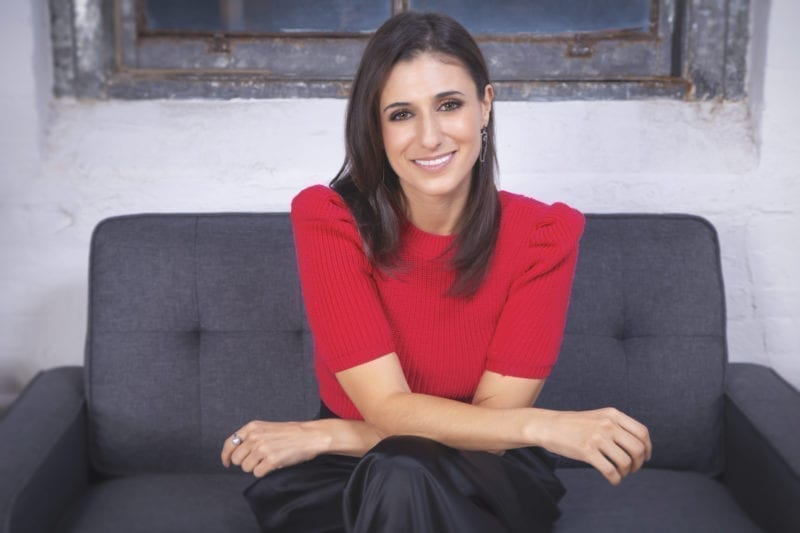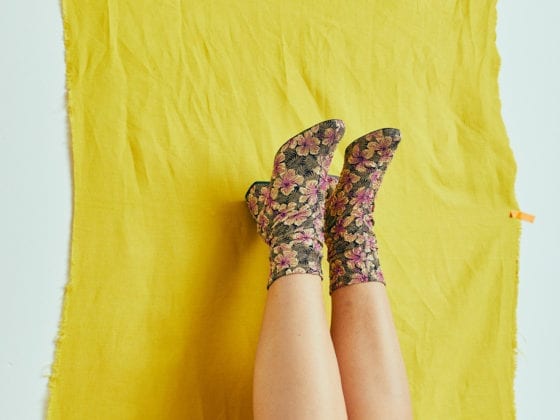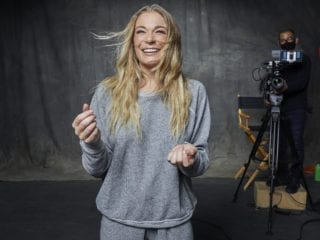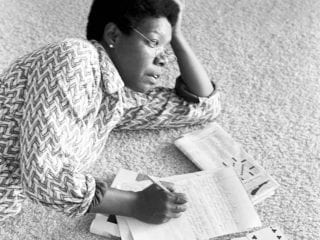“Real Women, Real Work” is a Darling series about everyday women who work in various fields including business, entertainment, science and education. We want to get to know the WHY behind their WHAT and get an inside look into different industries.
In an increasingly fractured social and political climate, “60 Minutes+” correspondent, Laurie Segall has never been more passionate about the field of journalism. Segall has often found herself at the forefront of covering what’s next in emerging technology. It’s no surprise that she’s among the founding cohort of correspondents for the new streaming edition of the iconic CBS News magazine “60 Minutes.” In recent years, the media titan has also launched her own entertainment company called Dot Dot Dot Media that is devoted to exploring the intersection of tech and humanity.
The platform connects the dots between technology and detailed storytelling (both written and audio) while seeking to humanize the media sector. Dot Dot Dot media explores topics like mental health, relationships, ethics and the unintended consequences of technology in our daily lives.
These common threads have inspired the topics and issues she’s covered as a journalist. Since March, Laurie and her team at “60 Minutes+” have covered extremist groups, virtual spaces where people are living and now buying homes and uncovering how radicalization happens over the Internet. Laurie’s greatest motivation is to approach these complex stories and people with nuance and empathy.
Darling got to chat with Laurie about her busy career in media and why she is passionate about telling complex and sometimes difficult stories. She shared with us details about her reporting, her upcoming book and her perspective on the media landscape.
What was the moment when you knew you wanted to be a reporter?
I’ve always been drawn to “corner stories”—the stories no one paid attention to. I had a column in the school newspaper called “Spotlight” that focused on shining a light on people who readers might not be familiar with. I once interviewed Coach Red, the school’s track coach who was well into his 80s at the time. He lit up when discussing his wife, how they met for the first time and what it was like fighting in World War II. As we neared the end of the interview, he revealed his latest battle: Parkinson’s Disease.
It was just the two of us, a pen and paper. He began crying. Here was an inspiring human who’d fought in the war, who had an incredible love story and was now staring at his own mortality while taking on a new battle. It was raw and real. It was the most meaningful conversation I’d had with an adult while at the newspaper, and the lightbulb went off. Getting people to open up and share their perspective became something that lit a fire in me.
Getting people to open up and share their perspective became something that lit a fire in me.
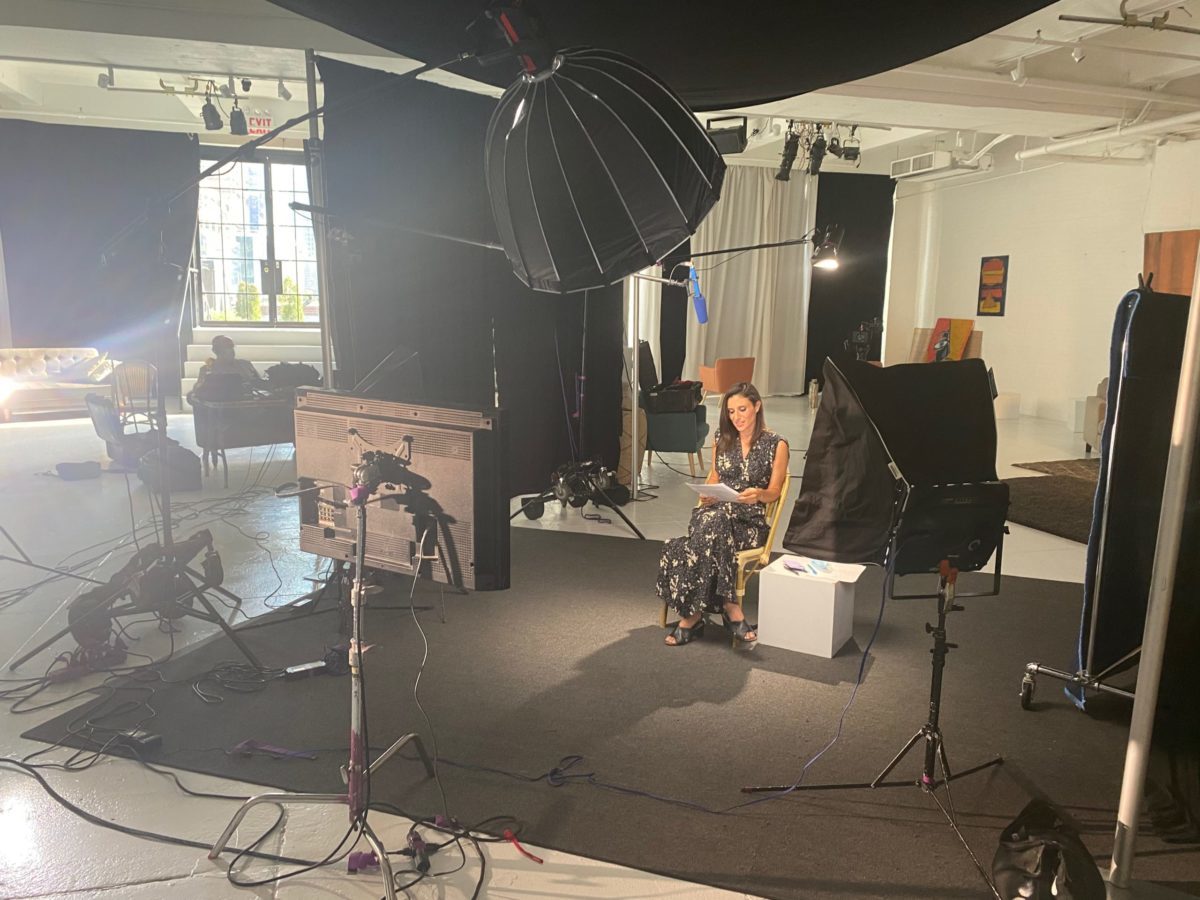 Were there any mishaps early on in your career as a reporter? What were some lessons you learned from them?
Were there any mishaps early on in your career as a reporter? What were some lessons you learned from them?
Failure is a necessary ingredient to success. I’ve experienced quite a bit of it.
My career at CNN was an untraditional one. I began at the bottom of the food chain and eventually became the senior on-air technology correspondent. I was a total rookie when I had my first on-air experience. I was terrified. I had no background in local news and my first time in front of the camera was on national television. I took a deep breath, sat in the same seat I used to bring guests to sit in as a news assistant and went for it.
When I was done with my segment, I was relieved and proud I hadn’t become an accidental YouTube sensation. I raced upstairs to my boss who smiled and held up eight fingers. “Eight?” I questioned. “Yes,” he replied. “Eight times you said ‘you know’ on air.” I was mortified.
Apparently, my nerves had come across very clearly during the segment. As hard as it was to hear, it was helpful. I realized what a gift that honest feedback is.
So I kept going. I appeared on air more, and the nerves eased. Eventually, I was able to be myself on camera. It always looked easy from afar, but the truth is it took repetition and putting myself out there to fail in order to get better and feel like my authentic self on television.
In today’s social media age, some might argue that technology often dehumanizes. How is Dot Dot Dot Media changing this narrative?
Technology can have a dehumanizing impact. It’s part of why I created Dot Dot Dot Media. I was and continue to be determined to use technology to explore the human condition. The shows we are working on are all a bit out there and deal with incredibly human concepts: death, love and mental health. We don’t get to separate ourselves from tech anymore. It’s another layer of our skin. I think the best thing we can do is figure out how to have human conversations around technology’s impact.
We launched an audio show on Clubhouse on Tuesday evenings this summer, and our latest episode was called “QAnon Therapy.” It was devoted to people who’ve lost touch with family and friends who’ve fallen victim to conspiracies and gone down the rabbit hole on the Internet. It was powerful to use technology as a medium to bring people together. I believe in nuance and empathy when having these conversations. These concepts often get lost in the quick world of media. We emphasize them at Dot Dot Dot, whether it’s in the shows we’re developing or any of the content we’re creating.
I believe in nuance and empathy when having these conversations. These concepts often get lost in the quick world of media.
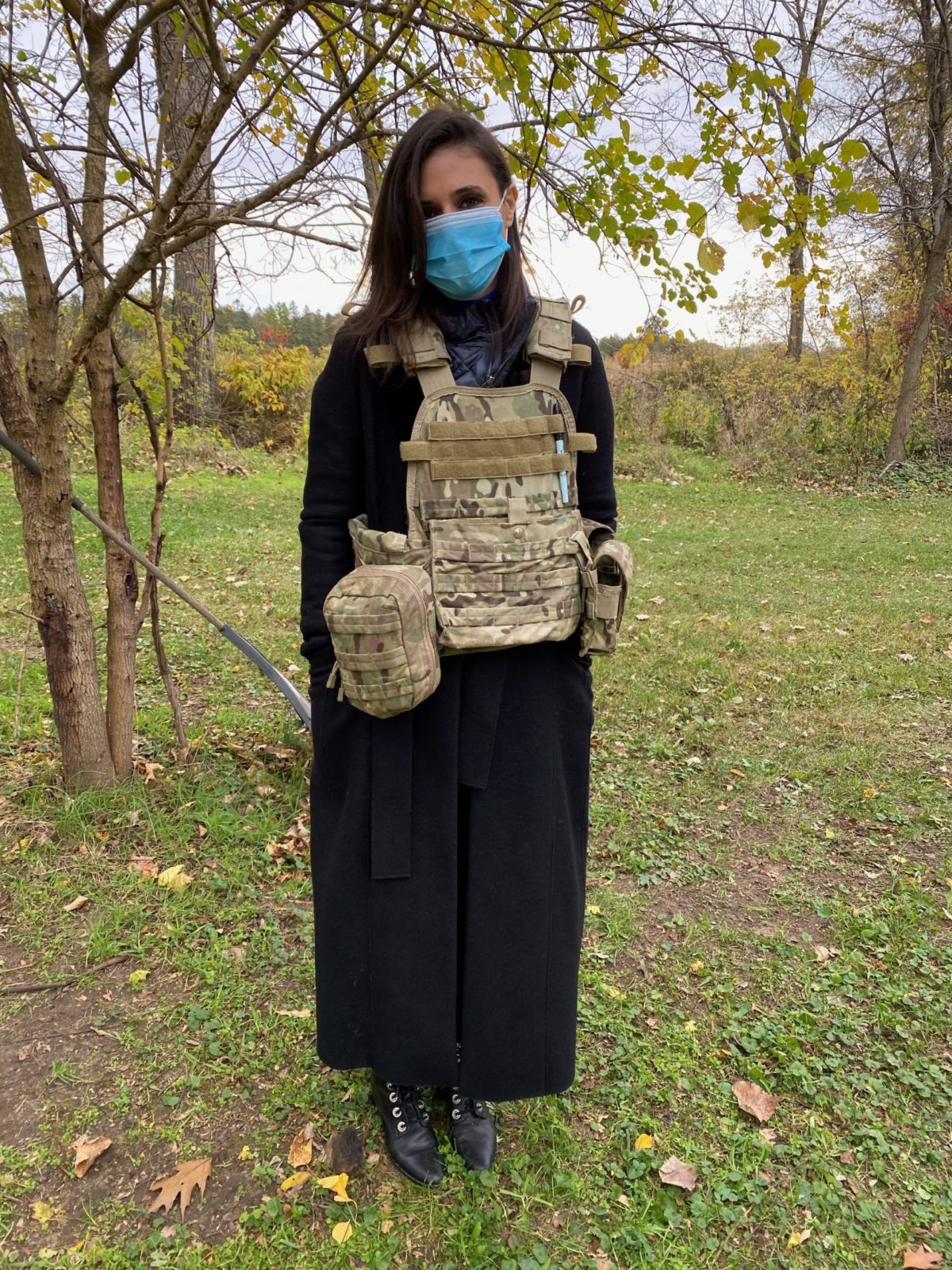
As a technology reporter, what has been the most surprising connection you’ve found between tech and mental health?
There’s a reason your app notifications are a certain color. They trigger something in the brain. This is intentional by design.
We also have been spending an incredible amount of time on video calls now, much more than we did more than a year ago. Ever wonder why you’re exhausted after a day of video calls?
Researchers at Stanford University have been studying this feeling, and they say that one of the reasons we feel so tired is intense eye contact. When we used to have meetings in person, we’d be spread out around a table. There were never just multiple faces staring directly at you from six inches away. What you’re experiencing when you feel exhausted after these meetings is called “hyper gaze.”
In video calls, you’re almost required to stare at all these faces to signal you’re paying attention—and they appear to be staring back—even if they’re looking at someone else. This is where it gets interesting. Your brain perceives this type of intense eye-contact as a precursor to a fight or an intimate encounter. Your brain sees all these faces and goes on high alert. Essentially, it’s ready to jump into action. However, being on high alert creates stress and that is why you feel like you haven’t moved, but you’re exhausted. It’s really fascinating to take a step back and look at tech’s direct impact on our brains.
What’s next in the world of emerging tech?
The pandemic accelerated quite a bit of tech trends and completely opened the door for new industries. I’m fascinated by the concept of what’s called the metaverse. It’s this idea that one day we will spend part of our time in a combination of the physical world and the virtual world.
It feels like we are entering a new era of the Internet. We all spent so much time immersed in our computers over the last year and a half and became even more comfortable living a digital existence, which made the concept of “the metaverse” more tangible.
In one of my recent stories for 60 Minutes+, we explored the concept. It’s like the movie Ready Player One. Increasingly, people are spending time in virtual worlds (for example: Fortnite, Roblox, Decentraland). A good example is the rapper Travis Scott who hosted a concert on Fortnite during the pandemic. Twenty-seven million people participated. Facebook is working on its own version of the metaverse as are many other companies. People are now building lives, socializing and spending money in these places, which will only get more interesting as augmented reality becomes more integrated into our everyday lives.
Today, you are also a correspondent for 60 Minutes+. What does a typical day on such a high-profile job look like?
One of my favorite parts of the job is that every day is completely different. One day, I’m at a QAnon convention in Florida talking to people about their beliefs and trying to understand why so many people are falling into conspiracies. A couple weeks later, I’m in a home in rural Michigan, talking to members of an extremist group called the Boogaloo Boys as they load their guns in preparation to attend a protest. A month later, I’m sitting across from a former member of one of the most dangerous white supremacist groups talking about radicalization. The Internet is the common thread in many of these stories and how I approach them.
I also run my company, Dot Dot Dot Media. On any given day, we are on video calls working on shows we have in development or planning our next audio show. I’m happy to say I just finished my book, “Special Characters: My Adventures with Tech’s Titan’s and Misfits.” I’ve spent my free time lurking at New York City coffee shops as they started reopening during the pandemic and writing about the last decade of tech innovation and the adventures that came along my journey of riding the startup wave to the top at CNN.
If there’s one thing that motivates and drives you as a journalist, what would it be?
Curiosity. I have always been curious about people ever since I started writing profiles in high school. I am a naturally curious person. While I’m a bit of an introvert, I love people and sharing their stories, especially the complicated ones.
I love people and sharing their stories, especially the complicated ones.
After the unprecedented events of 2020 and 2021, what would you say to someone who is apathetic toward the media and is disengaged?
I get it. Seriously, it’s exhausting. There’s so much noise. People on all sides are shouting, and it’s hard to really listen. It’s difficult for nuanced conversations to break through. Algorithms are optimized for polarization, and often, the more we scroll or watch, the more anxious we become.
As someone in the media, I would say I hear you and understand you, but (and of course, there’s a but), authentic storytelling and bursting your own bubble has never been more important. Take the time to find sources of media that challenge and stretch you. Listen to new voices. We don’t just get to bow out. If there’s anything these last years have taught us, it’s how important it is to be civically engaged and to be a part of the dialogue. Apathy is a bad ingredient to mix in with a world that needs a lot of work.
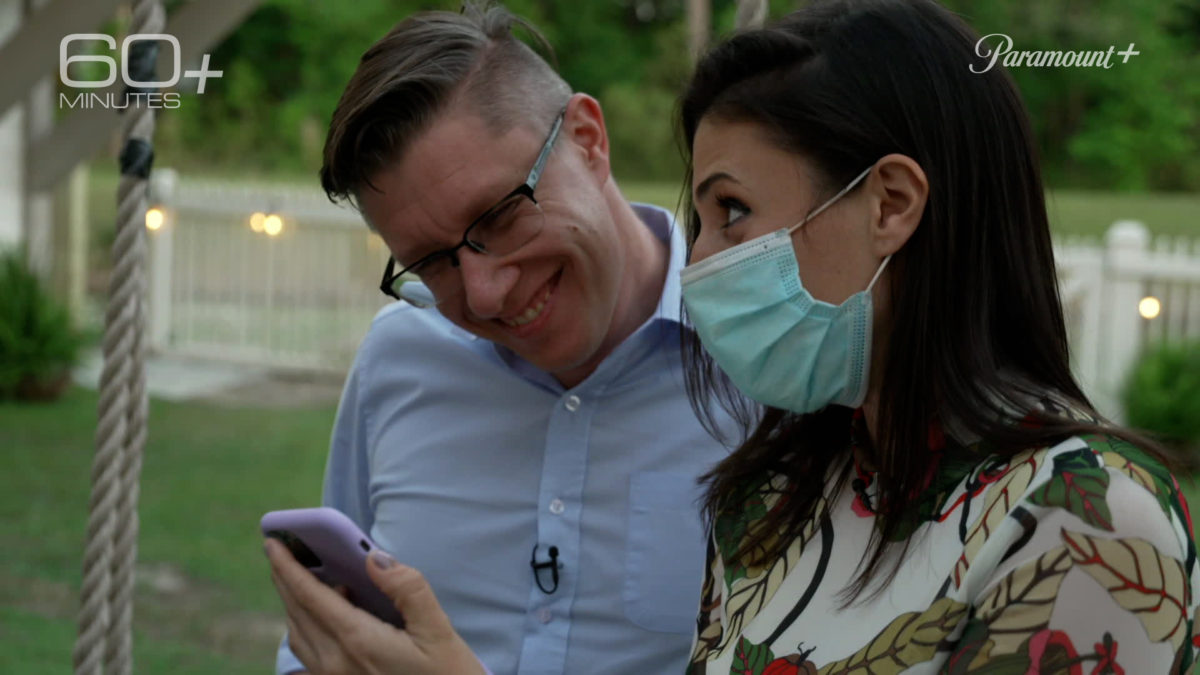
In the age of misinformation, what advice would you give the young woman interested in pursuing a similar career path in journalism?
If you are interested in pursuing a career in journalism, be scrappy. I was always scrappy. I was willing to mop the floors for my first gig. People who are willing to get creative when one door shuts—and many will in this industry—who refuse to give up and who are willing to do the unpopular tasks are the ones who get ahead.
People who are willing to get creative when one door shuts, who refuse to give up and who are willing to do the unpopular tasks are the ones who get ahead.
Remember to ask for help, and surround yourself with great people. There are many incredible women who changed my life. We bolstered each other. Find your allies. As a journalist who asks lots of questions for a living, my advice would also be to not forget to listen. The best answers come in follow-up questions.
Knowing what you know now, what advice would you give to your younger self about life and career?
I’d say, “Segall, you got this. Even when you don’t think you do, you are stronger than you ever realized. Step into yourself. You don’t have to live by the ‘shoulds.’ Life is much more authentic (maybe not easier, but much better) on the other side of other people’s expectations.
Also, get some sleep. You’re more tired than you realize.”
To keep up to date with Laurie, follow her on Instagram and her media company Dot Dot Dot Media. To shop her newest book, click here!
Image via
